1 : ELDINA (Bosnia) - Nursing home, 12:15
2 : PHOUNG (Vietnam) - Hospital, 12:30
3 : NATALIA (Ukraine) - Home care, 12:40
Adolf Schluckebier's motivation to create a "nurses' park" 120 years ago in order to give "the nurses working in the hospital an opportunity to relax from their hard work" seems downright visionary in view of the "nursing shortage" that had been noted for years - and came to a head in the Corona pandemic:
"The park was deliberately laid out in the form of small landscapes. This was also done for the sake of the sisters, to make it easier for them to settle in and to deepen their further life within the community of the motherhouse. Each of the sisters was supposed to find a piece of their native landscape somewhere in the park and thus a place where they felt particularly at home." This integration effort, the concern for the psychological well-being and the recognition of the nurses, who are now no longer recruited from Germany but from all over the world, is sometimes a major grievance nowadays.
With the project "3 new nurses", 3 nurses from foreign countries, some of them very far away, are now acoustically integrated into the "nurses' park" and attention is drawn to their living situation, who have all left their families to take over the nursing work with our family members.
I made interviews with 3 non-German nurses who cover the three care sectors (nursing home, hospital, home care) and who come from former or currently devastated war zones (Bosnia, Vietnam and Ukraine) about their professional and personal situation and asked them to name a favourite song and a plant from their homeland.
This material was electronically processed and transferred into a 3-channel listening situation. At three park benches there is a bed gallows, as known from the hospital, from which a Corona separating disc made of plexiglass hangs, which functions as a surface loudspeaker. On the disc, the aforementioned home plant can be seen in an illustration and the voice of the "nurse" can be heard, which expands spatially via two satellite speakers on the left and right in the bushes.
The sound of the individual voice (German with corresponding accent) is multiplied and splintered analogous to the torn social situation of the protagonists, quasi as a sonic manifestation of a multiple self. In these multiplications, splinter and cancer forms of the voice, an important musical element emerges: the breathing sounds when speaking, which were worked out of the interviews with special contrasting methods and are now projected into the surrounding space. These extremised breathing and swallowing sounds stand for both sides: for the breathing distress of the Corona patients as well as for the overtaxing of the nurses in the nursing emergency. The song in the native language is not spared these processes either, but at the same time forms a conciliatory counterpoint in the linguistically torn sound event.
Alongside this musicalisation, however, the documentary remains, so that the pieces do not run in a loop but as a narrative: as the story of the individual nurses, who tell of their quite different experiences in Germany. While the Bosnian Eldina is very satisfied with her work situation, but is very affected by the many corona deaths in her nursing home (dementia ward), the Vietnamese Phuong feels uncomfortable with the handling during the corona pandemic, because as a pregnant woman she nevertheless had to continue working in the intensive care unit and does not feel adequately employed in view of her qualification in Vietnam (4-year degree) as a nurse. It was most difficult for Natalia, a Ukrainian, who did the so-called 24h home care for a total of 6 times for 3 months in Germany and had to leave her 12-year-old daughter in Ukraine for this. For little money and without any outside contact (once she was literally locked in the house), she was at the mercy of an exploitative situation that is now classified as not legal - but is still practised.
All three tell of their longing for family and home, of the music they listened to for comfort, although the two younger ones, Eldina and Phuong, also see it as an opportunity to have started a new life in Germany, while Natalia now hardly knows what to do. The interview with her was conducted 3 weeks before the war began, so I dedicate this work to the Ukrainians fighting for their freedom.
texte | kataloge | CDs/DVDs | soundpicdocs
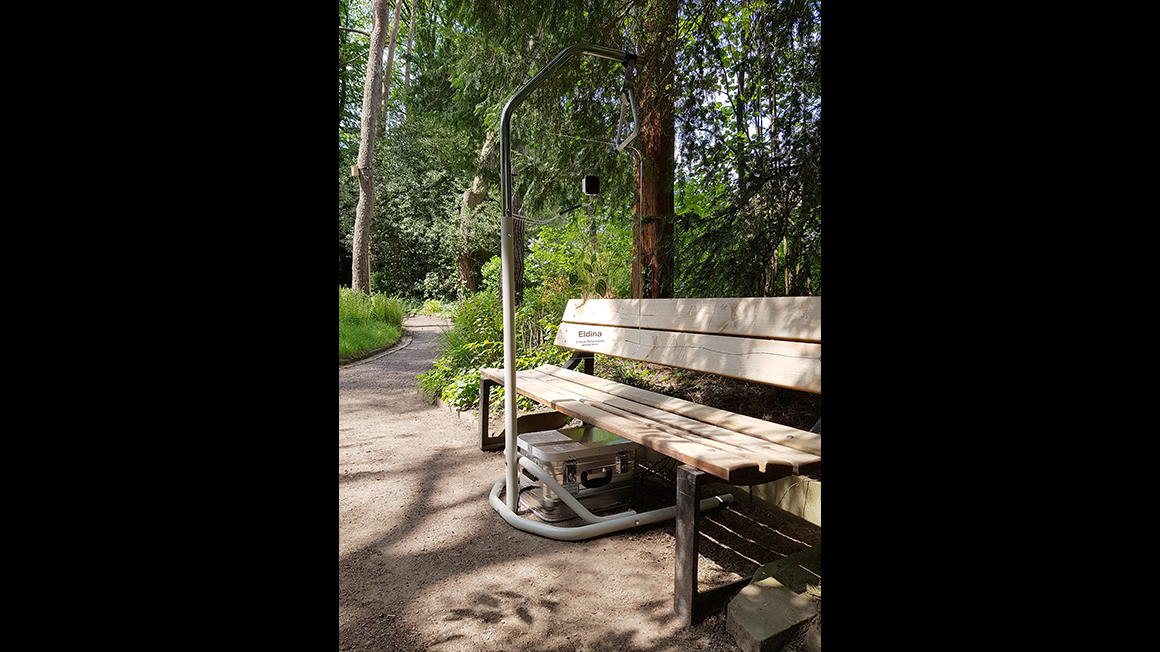
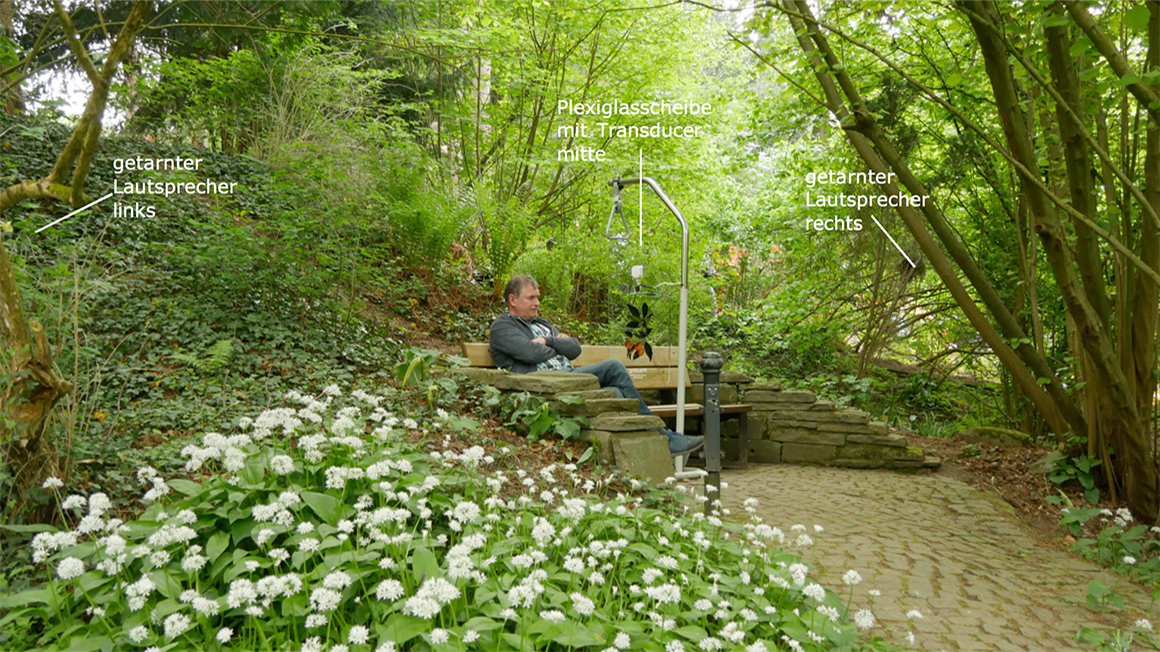
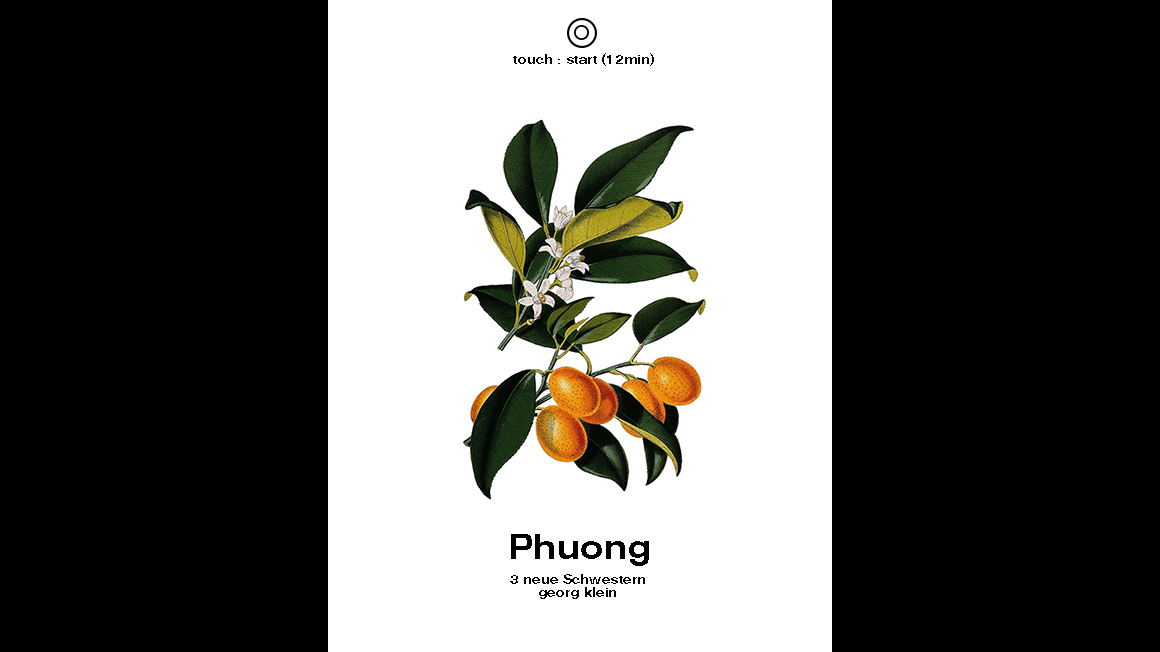
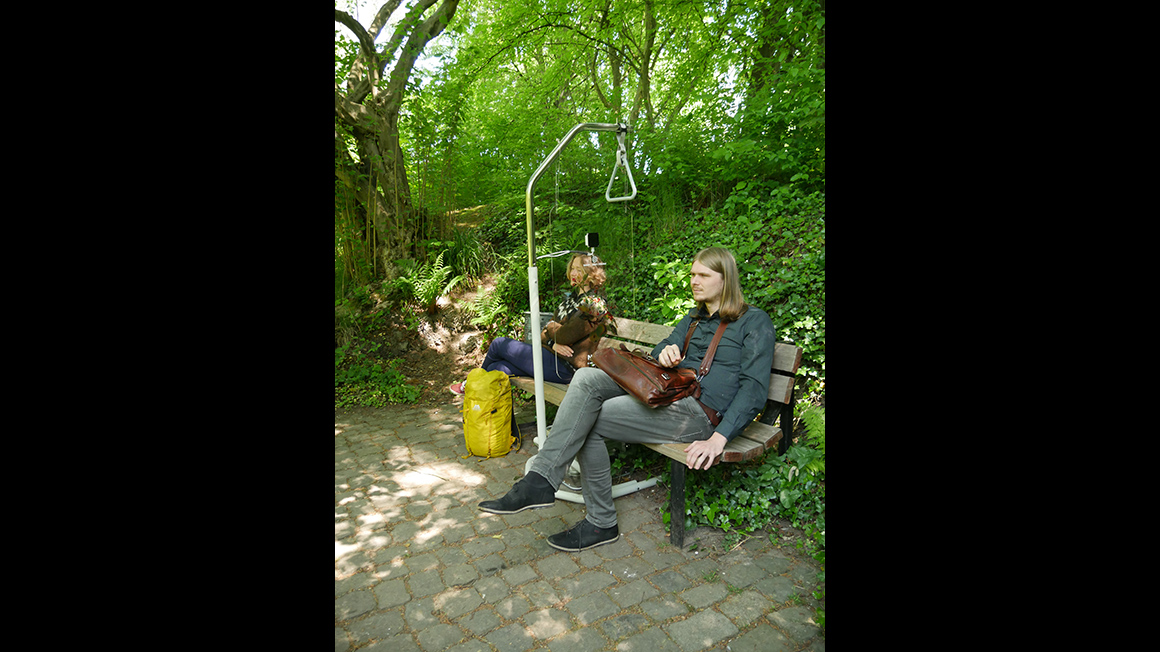
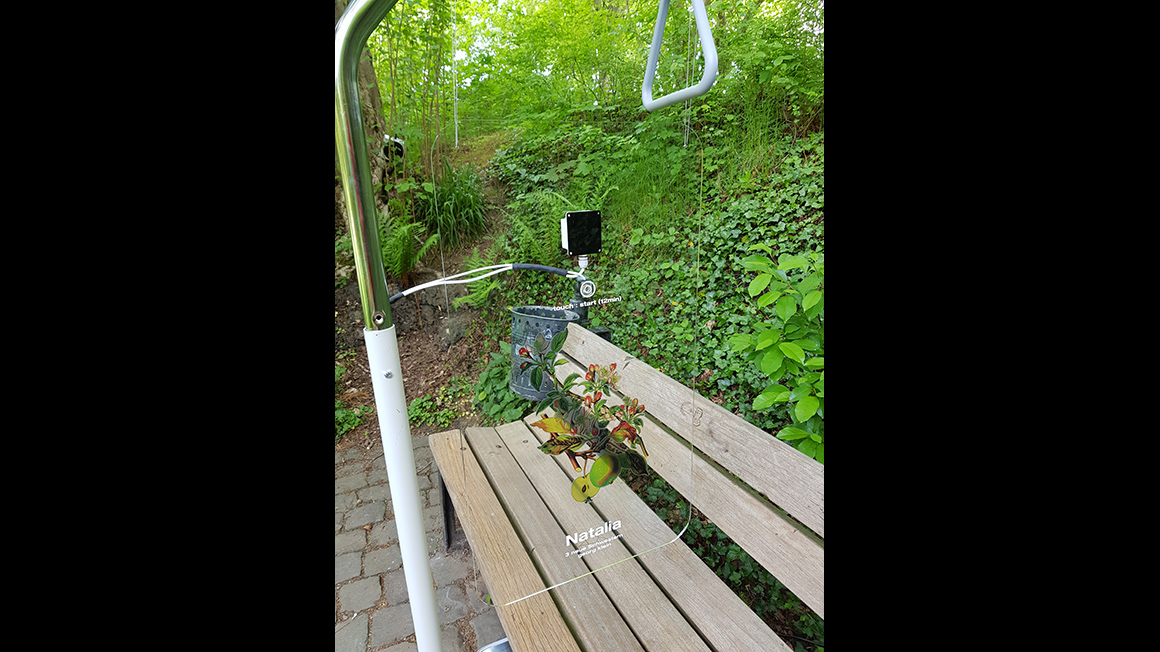
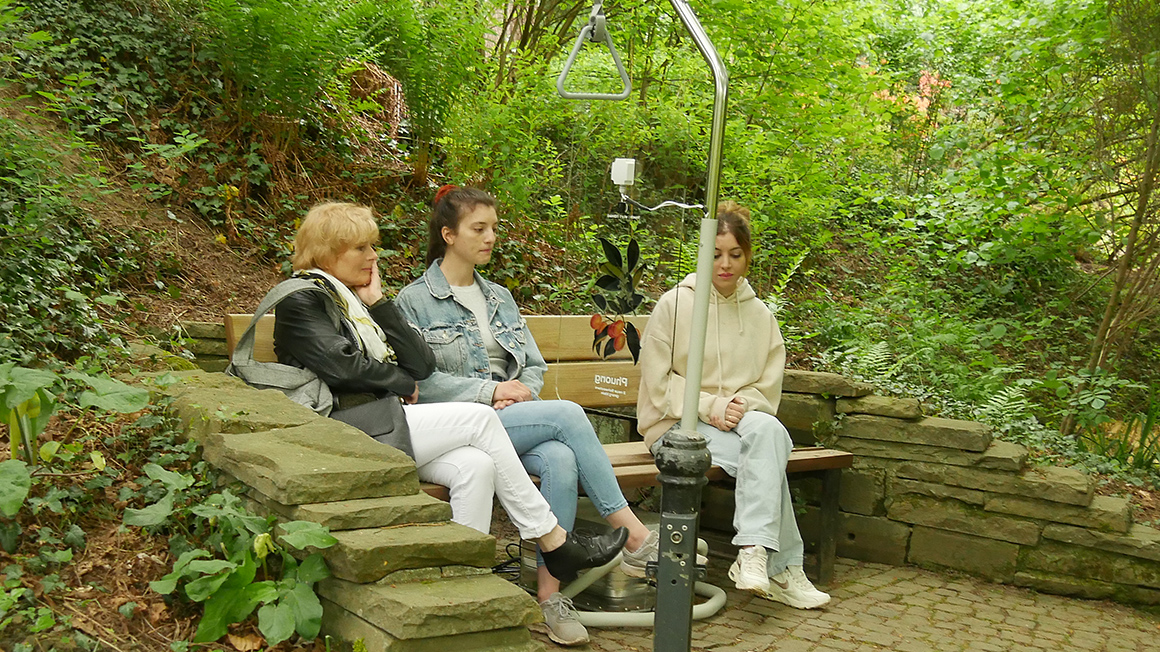
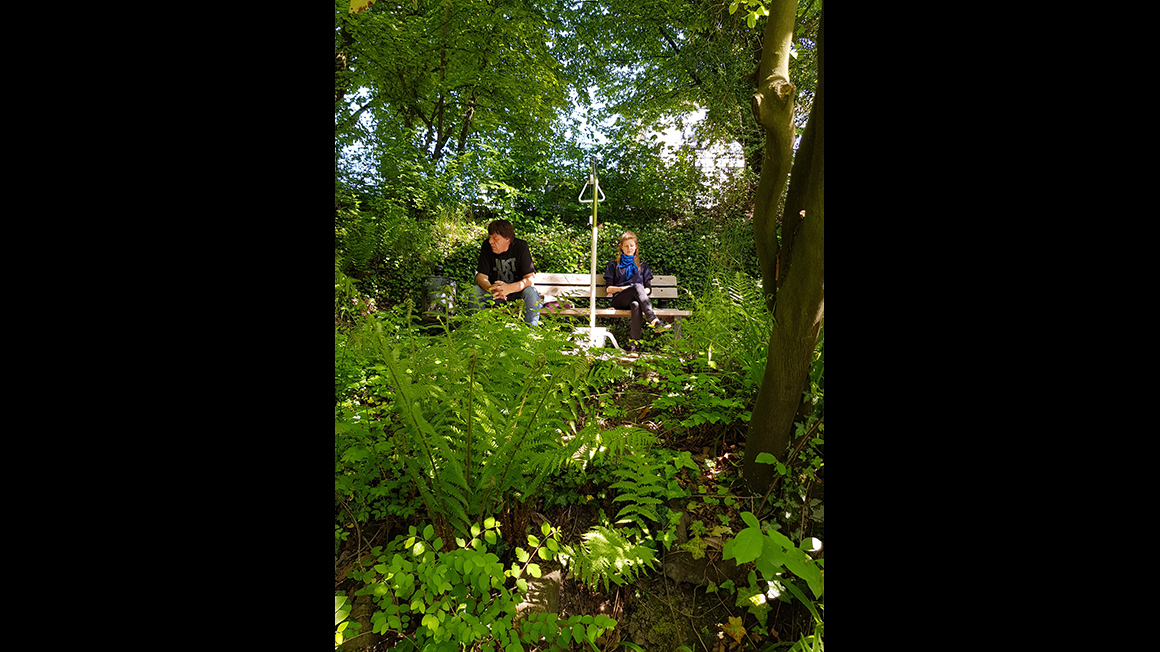
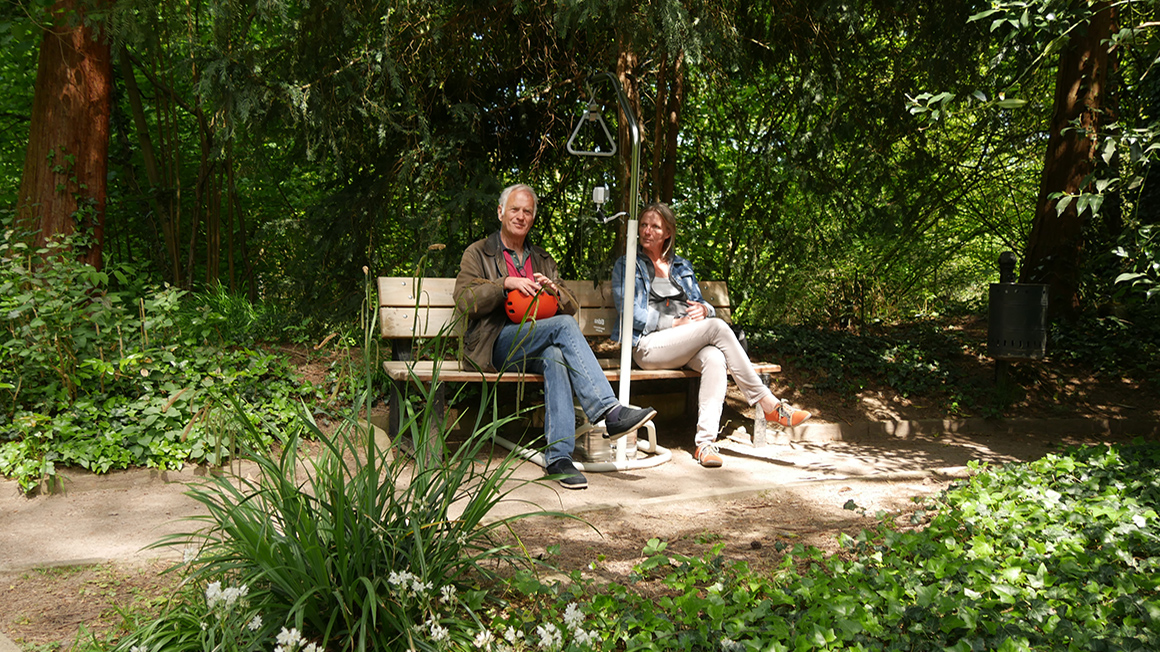
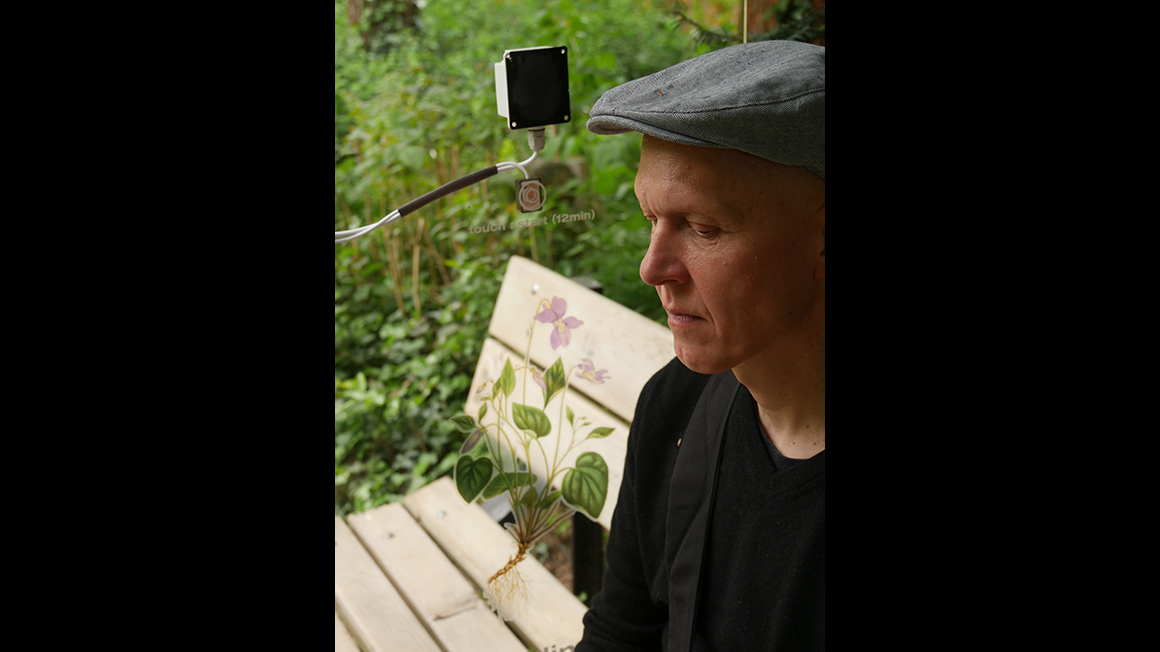
| >> video >> print fotos >> audio |
| 3 neue Schwestern 2022 3 installative interventions in the park 'Schwesternpark Witten' 3 bed gallows with acrylic glass pane / transducer / sensor and 2 satellite speakers Interview voices, song, plant illustr. Duration: each 12min. |
|
Wittener Tage für neue |
